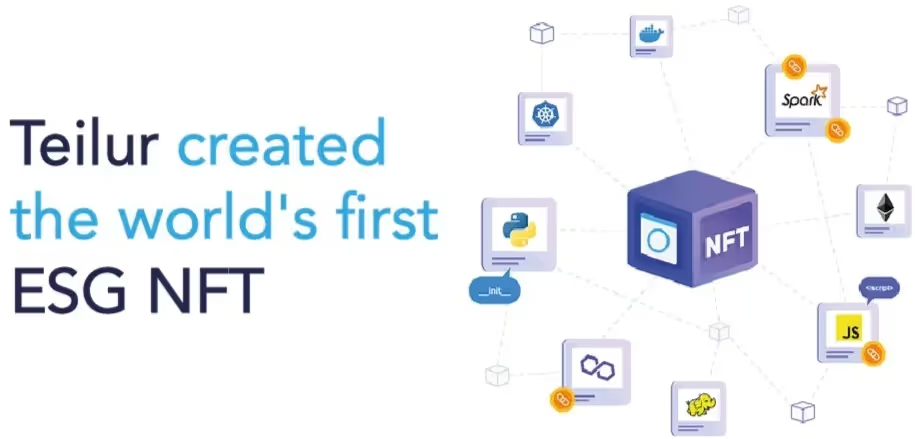As you may know, the value of art or digital land NFTs depends on what other people are willing to pay for them. NFTs have great potential but may not be for all types of investors.
What's their main problem? Their value is purely driven by the speculation of how they will provide value in the metaverse or as collectible items in the future. In other words, they don't have a clear intrinsic value tied to them.
An NFT is a speculative asset with high-risk, high return characteristics.
So, what makes ESG NFTs different?
Teilur created the world's first ecosystem to purchase, exchange and manage ESG NFTs. The concept is simple; these NFTs are employed to finance the training in technology of people in developing nations. NFT investors fund the training of talent pools and get a return when the talent starts working in the technology they were trained in.
What backs the value of ESG NFTs?
You can think OpenSea or Rarible, but instead of NFT values being backed by art or digital collectibles, the value of these ESG NFTs is derived from talent's potential future earnings depending on the skills they develop in the technology space.
The value of art or digital land NFTs depends on what other people are willing to pay for them. They have great potential but may not be for all types of investors. The problem is that their value is purely driven by the speculation of how they will provide value or utility in the metaverse or as collectible items. They are essentially speculative assets with high-risk, high return characteristics.

The ESG NFTs created by Teilur have a different valuation method. Their value is derived from the present value of the legally binding contracts that Teilur tokenizes with talent in Latin America.
When investors purchase ESG NFTs, they buy assets where the collateral is tokenized contracts that promise a portion of the future salary of talent studying data engineering, data science, and software engineering.
Investors can value these talent pools similarly to how they value investments in traditional enterprises. As talent pools progress in their training and start receiving job offers, pools reduce their risk of not generating cash flow in the future, and NFTs start generating dividends and potentially increasing in value.
Benefits of ESG NFTs
One of the key benefits of these ESG NFTs is that they help retail investors and wealth managers optimize and improve portfolio efficiency based on modern portfolio theory (MPT).
When ETH, BTC, or the entire crypto ecosystem goes down, NFT values of digital art and collectibles often go down with it. And while crypto markets do provide diversification benefits to traditional equity portfolios, we've seen a higher correlation between crypto and equities in times of higher volatility.

ESG NFTs developed by Teilur may not be immune to the market forces driving their market prices, but investors can rely on their fundamental value in times of irrational pricing. Compared to art or collectible NFTs, Teilur ESG NFTs have a cash flow promise embedded in each of the tokenized contracts correlated with the employment of candidates, not with the price of the S&P500 or Bitcoin.
Collateral of ESG NFTs explained
When investors purchase ESG NFTs, they buy assets where the collateral is tokenized contracts. Each contract promises a portion of the future salary of talent studying data engineering, data science, and software engineering.
Investors can value these talent pools similarly to how they value investments in traditional enterprises: As talent pools progress in their training and start receiving job offers, pools reduce their risk of not generating cash flow in the future, and NFTs start generating dividends and potentially increasing in value!

Picture Andrea, Carlos, and eight other new college grads from Colombia looking for a better future.
Their average salary is $300/month. Naturally, their lack of monetary resources does not allow them to get the proper training needed to develop a technology career remotely.
Teilur solves that for them.
Teilur signs a legally binding contract in the U.S. with each one of the students and pools these contracts together as an NFT.
That way, students get funding to cover their cost of training in technology careers as they progress, and in exchange, Teilur receives a contract that promises a portion of their monthly salary for six to nine months.
Once candidates are hired as data engineers, software developers, or data scientists, they pay back a portion of their salary, and those payments are then distributed to NFT holders.







